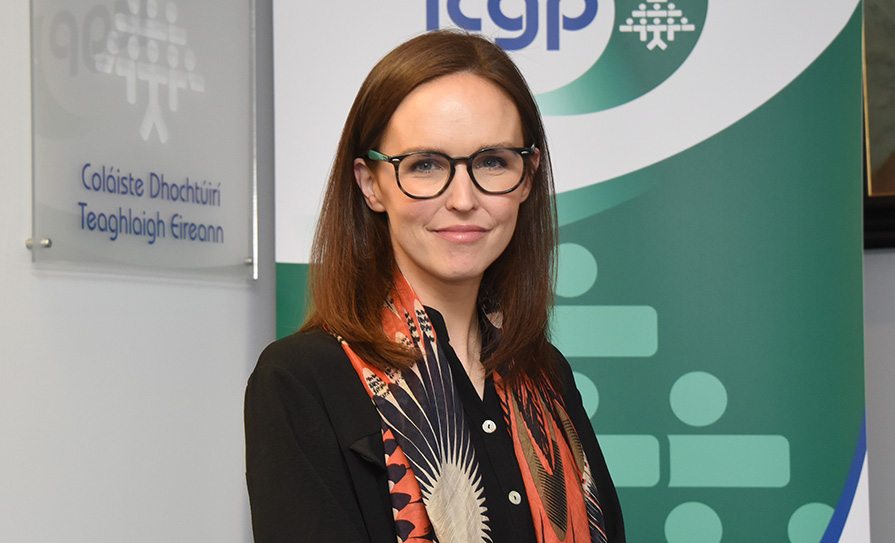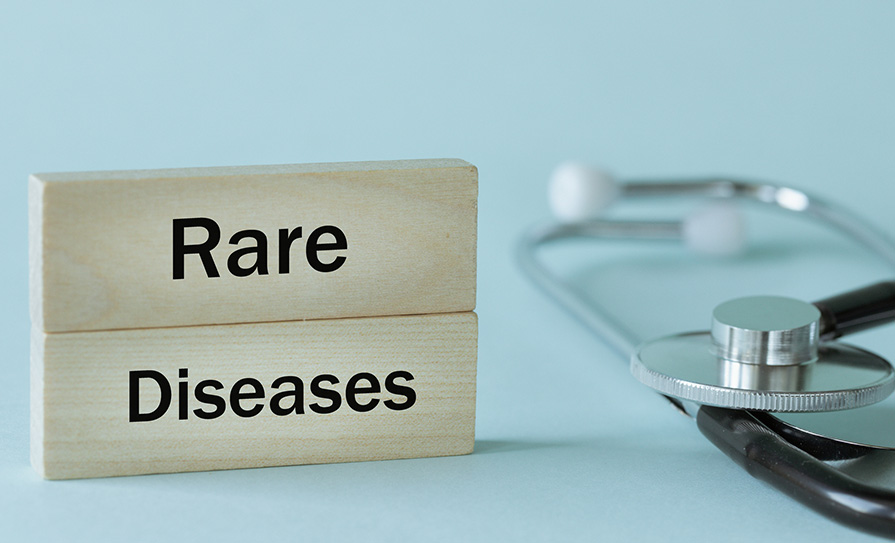Dr Ciara McCarthy, ICGP/HSE Clinical Lead in Women’s Health, speaks to Niamh Cahill about how her new role is part of a drive to improve the area of women’s health
The first Clinical Lead in Women’s Health in Irish general practice was appointed by the ICGP exactly one year ago.
The move was one of several long-awaited developments in women’s health that occurred in 2022.
During the year, the Women’s Health Action Plan 2022-2023 was published by the Department of Health.
The plan, which could be described as a watershed moment for women’s healthcare, was accompanied by dedicated funding. The menopause awareness campaign, launched last year, was among the initiatives it helped to support.
In 2022, €31 million supported women’s health developments, and this year the budget more than doubled to €69.2 million.
Since being appointed to the role of ICGP/HSE Clinical Lead in Women’s Health, Dr Ciara McCarthy has been steadily making progress in relation to education.
Quick reference guides
Quick reference guides (QRGs) on menopause and termination of pregnancy have been published by the ICGP to date and more are in development, Dr McCarthy informed the Medical Independent (MI).
The QRGs have been supported by funding from the women’s health taskforce, established by the Department to improve women’s health outcomes in 2019.
Before the end of 2023, QRGs on fertility, contraception, breastfeeding, and endometriosis will be available, according to Dr McCarthy.
Dr McCarthy’s working week comprises two days treating patients at a GP practice at Blackrock Hall, Cork, and two days in her role as Clinical Lead in Women’s Health, liaising with colleagues at the ICGP and HSE primary care services.
The Clinical Lead role is funded by the HSE after a requirement for the post was identified within the women’s health action plan.
Contraception, menopause, termination of pregnancy, and the community gynaecology course (which has been running for two years now) have been the areas of focus to date.
Dr McCarthy added: “We are just finalising an online educational resource on menopause for all GP trainees. It is a blended learning interactive online module followed by a live webinar.”
The resource will help to standardise menopause education for trainees, who may or may not have had exposure to menopause education during prior training, depending on their training programme, Dr McCarthy explained.
“It will mean that every new GP trainee will have exposure to menopause training, which we couldn’t have been certain of before. It’s largely based on the quick reference guide on menopause we launched last year, which contains up-to-date, relevant GP information.”
The new evidence-based module will be made available to all programme directors. It is one of a number of new modules on hypertension, ear, nose, and throat, and global health, that have been introduced to trainees. Separately, an online menopause theory course is in development for all GPs.
Feedback
There has been a positive response and interest from GPs in furthering their expertise on women’s health, said Dr McCarthy.
“We certainly haven’t exhausted the wish for education in women’s health. In fact, the feedback has been a desire for ongoing education in this area,” related Dr McCarthy.
The community gynaecology course, currently in its second year, has increased enrolments compared to 2022. This year, the course has also been opened to practice nurses and other healthcare professionals.
The momentum generated by the women’s health action plan and associated investment in services at primary and secondary level has been heartening for both medical professionals and patients, according to Dr McCarthy
“It [the action plan] takes into account the patient experience of women navigating the system and where they have found barriers accessing care. When you are establishing new services or improving existing ones it needs to be accessible to patients. What the women’s health action plan advocates for is the right care at the right place at the right time. I think we need to bear that in mind.
“There has been really significant progress. The Department of Health and the women’s health taskforce, and the Minister, have been very positive and funnelled a lot of money into women’s health, which has allowed services to expand.”
In general practice, two advancements in recent years have been free contraception for women aged 17-to-26 and the integration of an early termination of pregnancy services into general practice, according to Dr McCarthy.
“On a secondary care level, the specialist menopause clinics and ambulatory gynaecology clinics, where patients can have investigations completed in one day, are really positive and the feedback from patients has been positive.”
Capacity crisis
However, there is still much to do to improve services in women’s health. Dr McCarthy is concerned that further advances could be hampered by the workforce and capacity crisis in general practice.
“On a GP level, one of the biggest worries for us – and it’s not specific to women’s health – is the workforce and capacity crisis that we have in general practice,” she told MI.
Approximately one-fifth of GPs are due to retire in the next five years and “huge swathes of the population are unable to register with a GP practice because GPs are unable to take on extra patients because of capacity issues,” she added.
These factors could jeopardise timely access to care for women’s health and broader healthcare, she said.
“I think we need to be clever here. The ICGP published a strategy on this last year and has novel solutions to maintaining access to GPs by utilising access to allied healthcare professionals and increasing nurses and phlebotomists in general practice, for example.”
Further education
Newly adapted ICGP contraceptive theory courses and long-acting reversible contraception certificates will be relaunched this year.
The courses “ran aground during Covid” and are being “revamped” to ensure easier access for trainees and GPs, said Dr McCarthy.
Moving beyond solely GP-focused education, patient information videos have been produced by the ICGP with funding provided through the women’s health action plan.
There are plans to release more patient information videos, following the launch of a series on menopause last year that covered areas including symptoms, hormone replacement therapy, diet, and lifestyle interventions.
The short information videos will cover topics, such as heavy menstrual bleeding and contraception, to help inform women and foster a more “shared decision-making process between doctors and patients”, explained Dr McCarthy.
“It’s not a didactic or paternalistic process. It should be shared with the patient. I think women being educated and knowing what they want and what their concerns are helps that process.”
The videos produced to date are available on the ICGP website, www.icgpnews.ie.
Contraception
Free contraception for women aged 17-to-26 has been a significant development. Free access to condoms in all third-level institutions is another notable move in removing cost as an obstacle to safe sex, according to Dr McCarthy.
“Cost shouldn’t be a barrier. It shouldn’t be an impediment to safe sex or preventing access to free period products. Free contraception has removed cost as a barrier. For younger people before free contraception, cost was very much a barrier among this group.”
In the past, said Dr McCarthy, many young women would not have opted for more reliable, long-acting contraception because of higher upfront costs. She said now costs have been removed, this appears to have changed.
“We don’t have any official data yet, but anecdotally there seems to be a shift in that age group towards uptake of long-acting contraception, which is fantastic to see. You definitely would have seen people who would have said, ‘I would have thought about this before, but didn’t have the money for it.’”
Momentum
The ongoing development of fertility and endometriosis hubs in secondary care services is ensuring momentum within the women’s health movement is continuing, said Dr McCarthy.
“These things that have been talked about for so long but seem now to finally be happening are very positive. There is a real drive to get these up and running to give women the opportunity to access timely care in the right place when they need it.
“It’s really wonderful to be part of what is a very positive movement,” she said.
The Clinical Lead role is initially funded for two years only, but it is hoped further investment will be made available to allow this work to continue beyond 2024.













Leave a Reply
You must be logged in to post a comment.